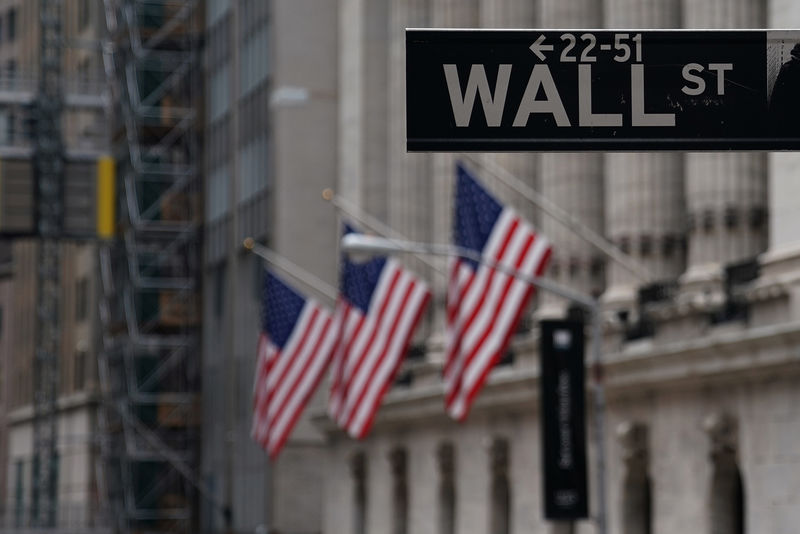By Chuck Mikolajczak
NEW YORK (Reuters) - A gauge of world stocks declined as Wall Street dipped on Thursday, although European shares rallied, while sterling hit a nine-month low against the euro after the Bank of England's policymakers kept interest rates unchanged.
Wall Street declined on a pullback in technology shares, the best performing sector so far in 2017. The S&P tech index (SPLRCT) fell 0.35 percent. However, the Dow Jones Industrial Average posted slight gains to hold above the 22,000 mark breached for the first time on Wednesday.
"When you hit these major milestones it’s not unusual to trade sideways for a few days," said Phil Blancato, CEO of Ladenburg Thalmann Asset Management in New York.
Britain's FTSE index (FTSE), up 0.85 percent, led the charge in overseas markets and sterling skidded to its lowest since Nov. 2 at 90.48 pence per euro (EURGBP=) after the Bank of England kept rates at a record low and cut its forecasts for growth and wages due to Brexit uncertainty.
The weaker growth outlook bolstered expectations the British central bank will be less likely to raise rates in the near future.
The FTSE notched its biggest daily percentage gain since July 12.
Europe's STOXX 600 (STOXX) recovered from early falls to nudge into positive territory, gaining 0.1 percent. Markets in Italy (FTMIB), up 1 percent, and France (FCHI), up 0.5 percent, advanced although German stocks dipped (GDAXI) 0.2 percent.
Among other upbeat news, retail sales in the euro zone increased by 0.5 percent in June from May, well above market expectations of a 0.1 percent rise.
The pan-European FTSEurofirst 300 index (FTEU3) rose 0.12 percent and MSCI's gauge of stocks across the globe (MIWD00000PUS) shed 0.14 percent.
The Dow Jones Industrial Average (DJI) rose 9.86 points, or 0.04 percent, to close at 22,026.1, the S&P 500 (SPX) lost 5.41 points, or 0.22 percent, to 2,472.16 and the Nasdaq Composite (IXIC) dropped 22.30 points, or 0.35 percent, to 6,340.34.
Stocks fell to session lows late in the session after the Wall Street Journal said Special Counsel Robert Mueller has impaneled a grand jury in Washington to investigate allegations of Russia’s interference in the 2016 elections, but quickly recouped those losses.
"People have had their selling shoes on, so any good excuse. I don’t know if in a different tape or a different environment this would have been viewed as negatively," said Stephen Massocca, Senior Vice President at Wedbush Securities in San Francisco.
U.S. Treasury yields fell to their lowest since late June in the wake of the Journal report. Benchmark 10-year notes (US10YT=RR) were last up 11/32 in price to yield 2.2247 percent, from 2.262 percent late on Wednesday.
U.S. labour market data showed the number of Americans filing for unemployment benefits fell last week, a positive factor that may keep the Federal Reserve on course to announce plans next month to start reducing its massive bond portfolio.
The claims data, however, has no bearing on July's employment report, which is scheduled to be released on Friday, as it falls outside the survey period.
The U.S. dollar held near 15-month lows, giving up slight gains against a basket of major currencies on doubt about the likelihood of a Fed rate hike this year and the grand jury report.

The dollar index (DXY) fell 0.06 percent, with the euro <EUR=> up 0.17 percent to $1.1874. Sterling